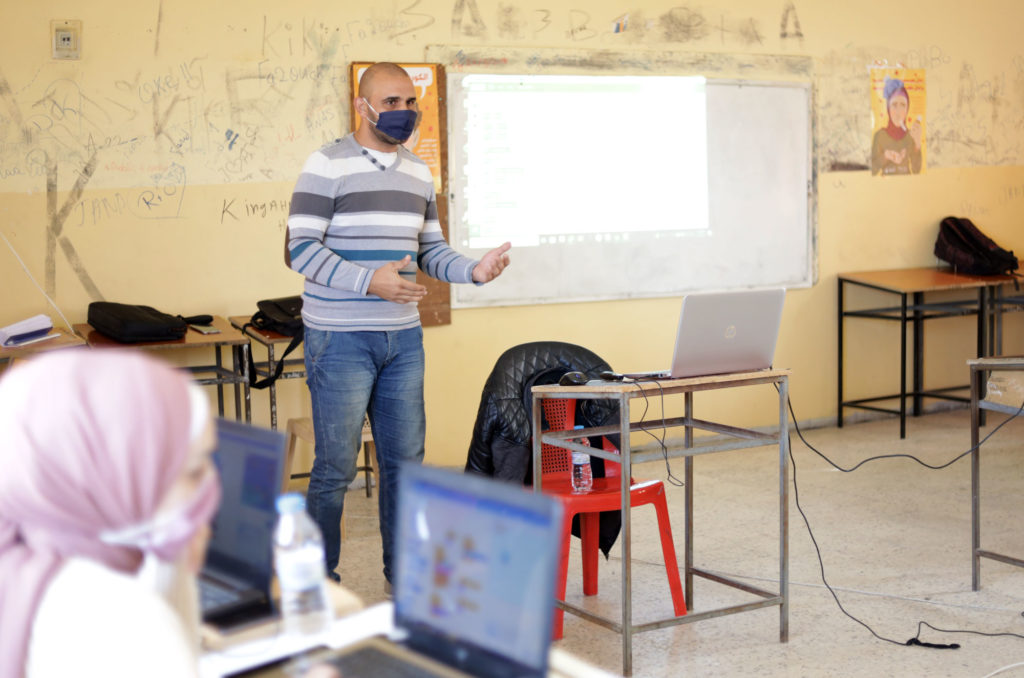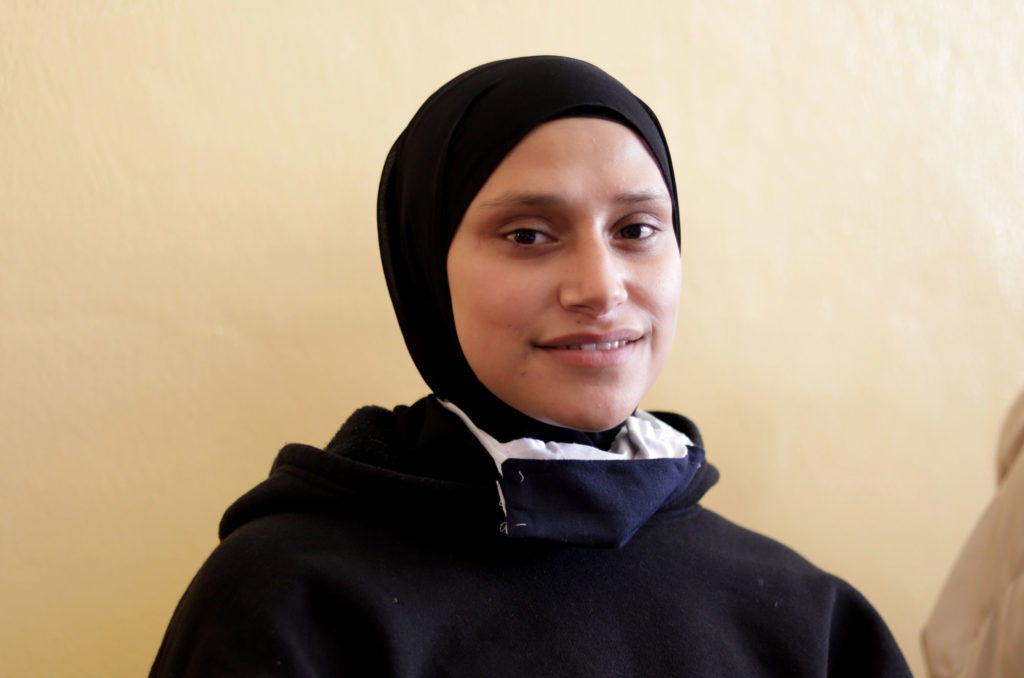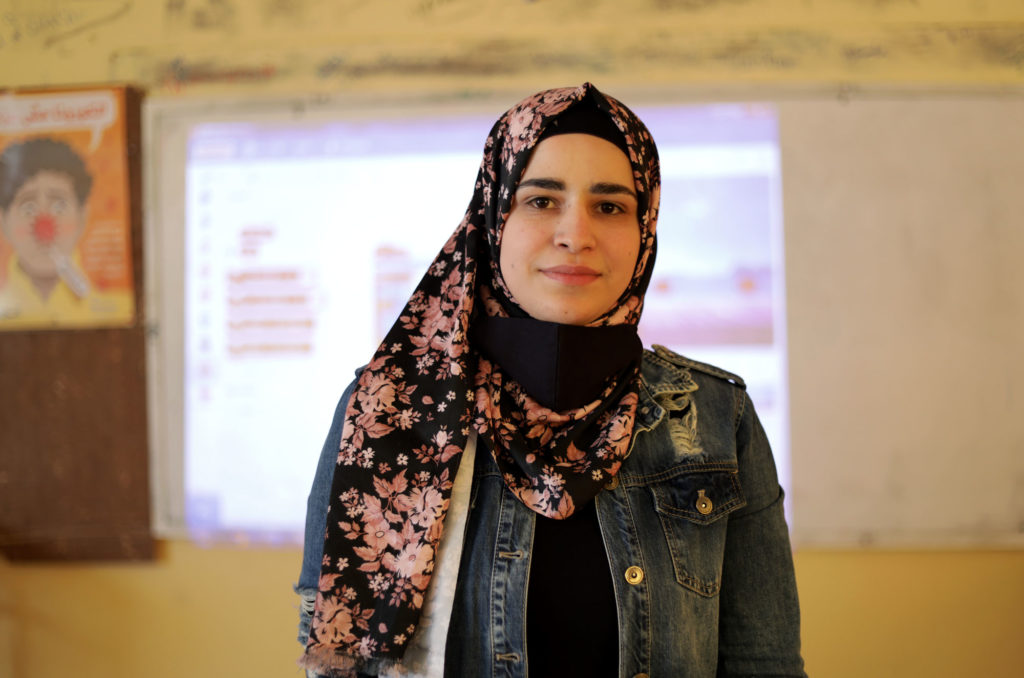Jan, 2022
“Whether you want to uncover the secrets of the universe, or you just want to pursue a career in the 21st century, basic computer programming is an essential skill to learn.” — Stephen Hawking
Coding has become a universal language that transcends borders and nationalities. It enables and facilitates many aspects of our everyday lives. Coders are the architects of the virtual world in which we conduct our work, connect with loved ones and explore our world.
To ensure a more equitable future, we must advocate for the inclusiveness of programming as a job-generating field in our global economy. Our Youth Empowerment, Education and Employability program offers a wide array of vocational courses. Recently we have added more trades sought after in the job market, including solar installation, digital art and design, and, lastly, computer programming, the topic of this story.
Through our partnership with UNICEF, we are making learning code accessible to marginalized youth in struggling economies as a means to exit the toxic cycle of poverty.
Al-Hamidiye Association is a small charity and one of Anera’s new partners in Akkar, Lebanon’s most vulnerable governorate. Al-Hamidiye offers pro-bono literacy programs and educational courses to extremely vulnerable youth. Ahmed Mustafa, the head of the English language department at Al-Hamidiyah and a trainer, believes that computer programming should be introduced to schools in vulnerable areas and taught at an early age. “We decided to launch programming courses for adolescents, who in return could tutor younger children in schools on the basics of computer programming.”
The students have now completed the first phase of the program, which covered video game development.


Next, they will move to learning code languages like HTML and Javascript. Meanwhile, as they continue to learn more complex programming, they will be tutoring children between 7 and 14 years old in schools. The students will be paid for their tutoring work with children, consistent with the model developed in our other vocational programs. So not only are these youth developing their coding skills, they are also earning income and influencing younger generations of potential future programmers.
“The goal of this program is to have a young programmer in every home by teaching young mentors,” says Ahmed. That is why one of the selection criteria is that the trainees have either completed a BA in computer science or attained a diploma certificate from a recognized institute.
Let’s meet the young coders!
Bashar is a Palestinian living in Nahr al-Bared refugee camp in Akkar. He has a Bachelor’s degree in computer science and was searching for affordable courses in programming to deepen his skillset. Luckily, he stumbled upon our coding course announcement on social media.
Bashar and the other participants are trained as instructors on an educational software program that teaches children some of the basic concepts used to create video games. "Using this program, we will be able to teach school students the basics of video game development,” Bashar says.
This experience has helped Bashar build a new goal for himself, teaching kids has helped him overcome his fear of public speaking and enhanced his communication skills. “I see myself as a programming coach in schools in the future,” he says.
Sarah is a 24-year-old Lebanese who studied basic IT at a technical institute. She could not find work in the field and had to work jobs unrelated to her studies.
“I signed up for this course because it is a combination of programming and working with children,” Sarah says. She wants to learn more about informatics and programming, which she believes will help her land high-paying jobs in the future.
“Things are dark in Lebanon. But maybe it’s the best time to work on ourselves as individuals and seize every available opportunity. If we surrender to Lebanon’s chaos, we will drown in depression.”


Sara' is a 23-year-old Syrian with a bachelor degree in informational technology. She worked very hard to enroll and graduate from university. But after graduation, she was met with a lot of disappointment, rejection and lack of any form of job opportunity.
When she decided to pursue her MA, she was also unable to enroll in any of the programs simply because she cannot afford them. She spiraled into depression and was struggling for some time.
“For me, bettering my mental health meant finding a purpose. So I focused on my technical skills — and one of the things I did was to join this course.”
Her self-esteem improved knowing that she is contributing to society through teaching children coding. Sara' is generating income to support herself and her family and is on her way towards recovery.
“I designed a number of video games in this course, and I was surprised and impressed by my programming abilities.”


This course deepens the students' marketable skill sets and better positions them to find relevant long-term employment. And the work experience they gain through the program also means they have an opportunity to touch the lives of the children they are instructing.


